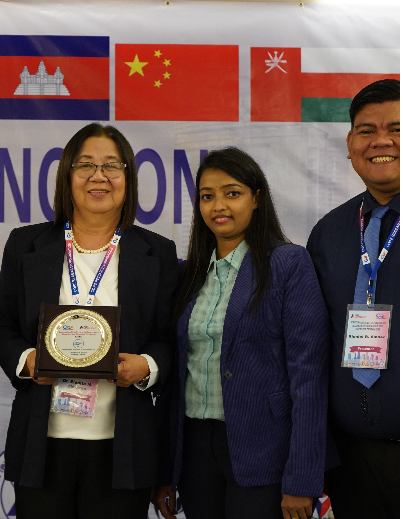Maximize Your Impact: Effective Strategies for Conference Paper Submission

Submitting a conference paper is a vital Conference Paper Submission occasion for experimenters and academics to partake their work with a wider followership, gain precious feedback, and establish their presence in their separate fields. still, the process of jotting and submitting a conference paper can be dispiriting. This companion provides effective strategies to help you maximize your impact during the conference paper submission process, icing that your work is honored and valued Conference Paper Submission .
Understanding the Conference Landscape
Before diving into writing your paper, it’s essential to understand the geography of academic conferences. Different conferences feed to colorful disciplines, and each has its unique submission guidelines, review processes, and prospects. Research the conferences applicable to your field to identify those that align with your exploration interests and pretensions. This understanding will guide you in acclimatizing your paper to meet the specific conditions of your chosen conference.
Choosing the Right Conference
opting the right conference is critical to maximizing your impact. Look for conferences that have a strong character in your field, attract a significant number of attendees, and give openings for networking and collaboration. Consider the following factors when choosing a conference
followership Identify who’ll attend the conference and whether they’re the right followership for your exploration.
compass insure that the conference themes align with your exploration content.
Character probe the conference’s history, keynote speakers, and organizing bodies.
Once you have linked a suitable conference, familiarize yourself with its submission deadlines, formatting conditions, and review criteria.
Casting a Compelling Paper
The quality of your paper is consummate to making a strong impact. Then are some strategies for casting a compelling conference paper
Develop a Clear Thesis Start with a well- defined thesis statement that encapsulates the main argument or donation of your exploration. A clear thesis will guide your jotting and help pundits understand the significance of your work.
Organize Effectively Structure your paper logically. A typical structure includes an preface, literature review, methodology, results, discussion, and conclusion. Use headlines and heads to guide compendiums through your argument.
Engage with the Literature Demonstrating familiarity with being literature is pivotal. Cite applicable studies to position your exploration within the broader academic converse and punctuate how your work contributes to or challenges being knowledge.
Use Clear and Concise Language Write in a clear and terse manner, avoiding slang and exorbitantly complex rulings. Aim for readability to insure your paper can be understood by a different followership.
Include Strong Data and substantiation Support your claims with robust data and substantiation. Use tables, numbers, and graphs to present complex information visually, making it easier for compendiums to grasp your findings.
Edit and Revise Take the time to completely edit and revise your paper. Seek feedback from associates or instructors who can give formative review. Revising your work multiple times will enhance clarity and strengthen your arguments.
Following Submission Guidelines
clinging to submission guidelines is pivotal for a successful conference paper submission. Precisely read the conference’s call for papers and insure that your submission meets all formatting and structural conditions. Pay attention to
Word Count Stick to the specified word limit for the paper.
Formatting Follow the needed formatting style, including fountain type, size, perimeters, and representing style.
Submission Process Understand the submission process, whether it’s through an online gate or dispatch, and make sure to submit your paper before the deadline.
Engaging with the Review Process
After submitting your paper, it’ll suffer a review process, which may involve multiple pundits assessing its quality, originality, and applicability. Then are some strategies to navigate this stage
Be Prepared for Feedback pundits may give formative feedback, which can be inestimable for perfecting your paper. Be open to review and willing to make variations grounded on their suggestions.
Respond Professionally If your paper is accepted with variations, respond to critic commentary courteously. Address each point raised, clarifying how you have made changes or why you chose not to.
